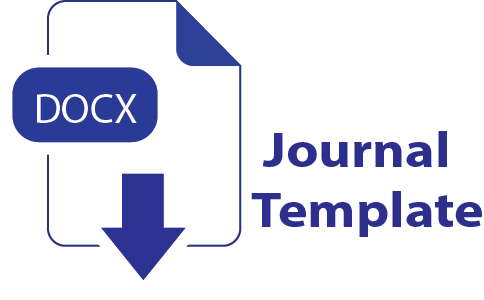PERAN BERBAGI PENGETAHUAN PRODUK UMKM KERIPIK NANAS KHAS KOTA PEKANBARU DI ERA NEW NORMAL
Abstract
Penelitian ini merupakan penelitian deskriptif kuantitatif yang bertujuan untuk mengetahui hubungan antar variabel penelitian yaitu berbagi pengetahuan, kapabilitas pemasaran, kapabilitas inovasi, dan kapabilitas responsive. Lokasi Penelitian dilakukan di Kota Pekanbaru, dimana objek penelitian ini adalah pelaku usaha UMKM Keripik Nanas yang terdaftar pada Dinas Koperasi dan UMKM Pemerintah kota Pekanbaru. Populasi penelitian adalah seluruh pelaku usaha UMKM Keripik Nanas, dengan teknik sampling digunakan untuk menentukan sampel pada penelitian. Penelitian ini menggunakan teknik sampling yaitu purposive sampling. Purposive sampling merupakan teknik untuk menentukan sampel penelitian dengan beberapa pertimbangan/kriteria tertentu yang bertujuan agar data yang diperoleh nantinya bisa lebih representative. Purposive sampling menggunakan kriteria khusus yaitu; telah berjualan selama 2 tahun, penghasilkan > 2 juta perbulan, dan bersedia mengisi kuesioner. berdasarkan data dari Dinas Koperasi dan UMKM Kota Pekanbaru sebanyak 120 UMKM yang memenuhi kriteria tersebut sehingga keseluruhan dijadikan sampel. Hasil penelitian menjelaskan bahwa keseluruhan hipotesis terbukti berpengaruh positif dan signifikan. Variabel berbagi pengetahuan berpengaruh positif dan signifikan terhadap kapabilitas pemasaran. Variabel kapabilitas pemasaran berpengaruh positif dan signifikan terhadap kapabilitas inovasi dan kapabilitas responsif.
References
F. Angulo-Ruiz, N. Donthu, D. Prior, and J. Rialp, “How does marketing capability impact abnormal stock returns? The mediating role of growth,” J. Bus. Res., vol. 82, no. March 2017, pp. 19–30, 2018.
H. Sulistyo and Siyamtinah, “Innovation capability of SMEs through entrepreneurship, marketing capability, relational capital and empowerment,” Asia Pacific Manag. Rev., vol. 21, no. 4, pp. 196–203, 2016.
H. Takeuchi, “The New Dynamism of the Knowledge-Creating Company,” Japan, Mov. Towar. a more Adv. Knowl. Econ. Adv. knowledge-creating Co., pp. 1–10, 2019.
J. Cunningham, C. Seaman, and D. McGuire, “Knowledge sharing in small family firms: A leadership perspective,” J. Fam. Bus. Strateg., vol. 7, no. 1, pp. 34–46, 2016.
K. Efrat, S. Gilboa, and M. Yonatany, “When marketing and innovation interact: The case of born-global firms,” Int. Bus. Rev., vol. 26, no. 2, pp. 380–390, 2017.
L. Cacciolatti and S. H. Lee, “Revisiting the relationship between marketing capabilities and firm performance: The moderating role of market orientation, marketing strategy and organisational power,” J. Bus. Res., vol. 69, no. 12, pp. 5597–5610, 2016.
M. U. Ahmed, M. M. Kristal, and M. Pagell, “Impact of operational and marketing capabilities on firm performance: Evidence from economic growth and downturns,” Int. J. Prod. Econ., vol. 154, pp. 59–71, 2014.
M. M. Hu, J. Horng, and Y. C. Sun, “Hospitality teams : Knowledge sharing and service innovation performance,” Tour. Manag., vol. 30, no. 1, pp. 41–50, 2019.
M. W. Nyadzayo, M. J. Matanda, and M. T. Ewing, “The impact of franchisor support, brand commitment, brand citizenship behavior, and franchisee experience on franchisee-perceived brand image,” J. Bus. Res., vol. 68, no. 9, pp. 1886–1894, 2015.
P. Foroudi, Z. Jin, S. Gupta, T. C. Melewar, and M. M. Foroudi, “Influence of innovation capability and customer experience on reputation and loyalty,” J. Bus. Res., vol. 69, no. 11, pp. 4882–4889, 2016.
P. Nath, S. Nachiappan, and R. Ramanathan, “The impact of marketing capability, operations capability and diversification strategy on performance: A resource-based view,” Ind. Mark. Manag., vol. 39, no. 2, pp. 317–329, 2018.
S. Yeşil, A. Koska, and T. Büyükbeşe, “Knowledge Sharing Process, Innovation Capability and Innovation Performance: An Empirical Study,” Procedia - Soc. Behav. Sci., vol. 75, pp. 217–225, 2020.
T. P. Tang, X. Fu, and Q. Xie, “Influence of functional conflicts on marketing capability in channel relationships,” J. Bus. Res., vol. 78, pp. 252–260, 2015.
Y.-L. Lai and F.-J. Lin, “The Effects of Knowledge Management and Technology Innovation on New Product Development Performance An Empirical Study of Taiwanese Machine Tools Industry,” Procedia - Soc. Behav. Sci., vol. 40, pp. 157–164, 2021.
Z. Wang and N. Wang, “Knowledge sharing, innovation and firm performance,” Expert Syst. Appl., vol. 39, no. 10, pp. 8899–8908, 2012.
Z. Wang, P. N. Sharma, and J. Cao, “From knowledge sharing to firm performance: A predictive model comparison,” J. Bus. Res., vol. 69, no. 10, pp. 4650–4658, 2016.
Full Text: PDF










